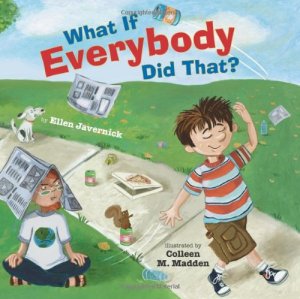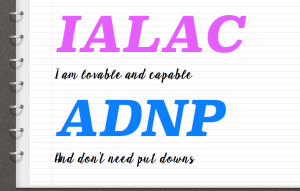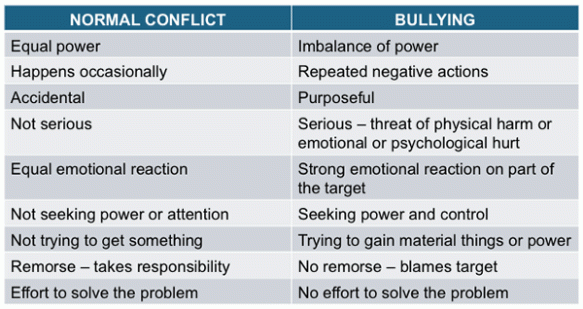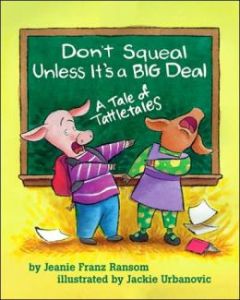 This week our classes will be discussing the importance of using our manners and being responsible as we read “What If Everybody Did That?” written by Ellen Javernick. This book is about making choices. It discusses situations like “What happens when people don’t follow the rules just one time?” With each situation presented, the boy in the story is asked “What if everybody did that?”. We will talk about these situations and many more as we discuss how our choices impact our lives at home, at school, in our community, and ultimately the world around us. We will discuss the concept that all of these simple choices seem like a small thing–not using our manners, not following the rules, or not being responsible for ourselves and our things-when ONE person makes a poor choice, but what if everyone chooses to ignore the rules? How would this impact each of us? The students will also identify the responsibilities we have as students, members of the class, members of our school, our family, and our community. We will talk about how using our manners plays an important role in helping us follow rules and take responsibility for our own actions.
This week our classes will be discussing the importance of using our manners and being responsible as we read “What If Everybody Did That?” written by Ellen Javernick. This book is about making choices. It discusses situations like “What happens when people don’t follow the rules just one time?” With each situation presented, the boy in the story is asked “What if everybody did that?”. We will talk about these situations and many more as we discuss how our choices impact our lives at home, at school, in our community, and ultimately the world around us. We will discuss the concept that all of these simple choices seem like a small thing–not using our manners, not following the rules, or not being responsible for ourselves and our things-when ONE person makes a poor choice, but what if everyone chooses to ignore the rules? How would this impact each of us? The students will also identify the responsibilities we have as students, members of the class, members of our school, our family, and our community. We will talk about how using our manners plays an important role in helping us follow rules and take responsibility for our own actions.
Monthly Archives: October 2016
Stranger Danger and Healthy Choices
 To celebrate Red Ribbon Week and following up with our Safe Environments lesson from last week, the early elementary grades will learn about “stranger danger” and making good choices. We will read “The Berenstain Bears Learn About Strangers”. We will follow Brother and Sister Bear as they learn about personal safety and stranger danger. Brother and Sister offer six rules for cubs, which reiterate what we talked about last week.
To celebrate Red Ribbon Week and following up with our Safe Environments lesson from last week, the early elementary grades will learn about “stranger danger” and making good choices. We will read “The Berenstain Bears Learn About Strangers”. We will follow Brother and Sister Bear as they learn about personal safety and stranger danger. Brother and Sister offer six rules for cubs, which reiterate what we talked about last week.
1. Never talk to a stranger.
2. Never take candy or other gifts from a stranger.
3. Never go anywhere with a stranger.
4. Don’t keep secrets from your parents–especially if someone asks you to.
5. Your body is your own personal property and nobody else’s business.
6. Use your common sense.
 The upper elementary students will learn about making healthy choices. We will talk about how unwise choices can sometimes trap us in situations that are like spider webs. Sometimes they are not easy to see. To be safe, we must be aware and watch out for situations that are like webs that can trap us. Once we are in the web or situation, we must face the consequences, both the good and the bad. We will talk about how to make healthy choices and avoid the “trap” of poor choices and negative consequences.
The upper elementary students will learn about making healthy choices. We will talk about how unwise choices can sometimes trap us in situations that are like spider webs. Sometimes they are not easy to see. To be safe, we must be aware and watch out for situations that are like webs that can trap us. Once we are in the web or situation, we must face the consequences, both the good and the bad. We will talk about how to make healthy choices and avoid the “trap” of poor choices and negative consequences.
Self Esteem
 Positive self esteem is such an essential part of child development and is shaped and influenced in different ways throughout all of our lives. This week in our counseling lessons, we will focus on embracing our uniqueness and the special things that make us who we are. We will talk about the courage that is sometimes needed when “who we are” isn’t embraced by those around us. The early elementary students will read “Spaghetti In a Hot Dog Bun, Having The Courage To Be Who You Are” by Maria Dismondy. The upper elementary students will learn how positive and negative interactions can affect their self-esteem and attitudes. They will also learn ways in which they can be more positive with others by realizing that they are lovable and capable and no one needs put downs.
Positive self esteem is such an essential part of child development and is shaped and influenced in different ways throughout all of our lives. This week in our counseling lessons, we will focus on embracing our uniqueness and the special things that make us who we are. We will talk about the courage that is sometimes needed when “who we are” isn’t embraced by those around us. The early elementary students will read “Spaghetti In a Hot Dog Bun, Having The Courage To Be Who You Are” by Maria Dismondy. The upper elementary students will learn how positive and negative interactions can affect their self-esteem and attitudes. They will also learn ways in which they can be more positive with others by realizing that they are lovable and capable and no one needs put downs.

Conflict and Bullying
 Everyone faces conflict in daily life and through it we can learn how to negotiate and build relationships. This week the upper elementary students will understand that conflict is inevitable but bullying is not. We will review the definition of bullying from last week and learn the difference between bullying and normal conflict. The students will also learn how to resolve normal conflict through the use of I-messages. The use of I-messages (or I-statements) help us talk about and take ownership of our feelings while expressing the reasons we feel the way that we do without blaming others or calling names. The students will develop their own conflict and bullying scenarios on 3×5 cards to share with the class. Then, we will practice using I-messages to help resolve their scenarios together.
Everyone faces conflict in daily life and through it we can learn how to negotiate and build relationships. This week the upper elementary students will understand that conflict is inevitable but bullying is not. We will review the definition of bullying from last week and learn the difference between bullying and normal conflict. The students will also learn how to resolve normal conflict through the use of I-messages. The use of I-messages (or I-statements) help us talk about and take ownership of our feelings while expressing the reasons we feel the way that we do without blaming others or calling names. The students will develop their own conflict and bullying scenarios on 3×5 cards to share with the class. Then, we will practice using I-messages to help resolve their scenarios together.
Don’t Squeal, Unless It’s a Big Deal! Tattling vs. Reporting
 Is it telling or tattling? Sometimes it is hard to tell the difference between the two. This week our lower elementary students will discover when they should tell an adult and when they could solve a problem themselves, without tattling.
Is it telling or tattling? Sometimes it is hard to tell the difference between the two. This week our lower elementary students will discover when they should tell an adult and when they could solve a problem themselves, without tattling.
We will read “Don’t Squeal Unless It’s A BIG Deal” by Jeanie Franz Ransom. The students will learn that it is appropriate to tell an adult when the situations might be harmful/dangerous, important, if someone is being mean on purpose, or to get someone out of trouble, to name a few.
It is “tattling” when you are telling an adult to get someone IN trouble, the situation is harmless, pointing out unimportant details, or if the action was done by accident. Another easy way to remember the difference is if the situation is an emergency–needing attention right away–or not an emergency, meaning it can wait or you can work it out on your own by talking, listening, and helping each other solve the problem.
Bullying

We absolutely LOVE Howard B. Wigglebottom! The students get so excited when I introduce his stories and The We Do Listen Foundation does an excellent job with bringing Howard to life. This week our younger students follow Howard as he encounters bullying in “Howard B. Wigglebottom Learns About Bullies” by Howard Binkhow. We will learn to “Be Brave, Be Bold, A Teacher Must Be Told” when facing bullying situations and listen to the catchy song with the same title.
We all face various conflicts in daily life and, through it, we can learn how to negotiate and build relationships. However, bullying is never acceptable. This week the upper elementary students will review our school statement on bullying, terms, and understand the importance of how we treat each other every day.
